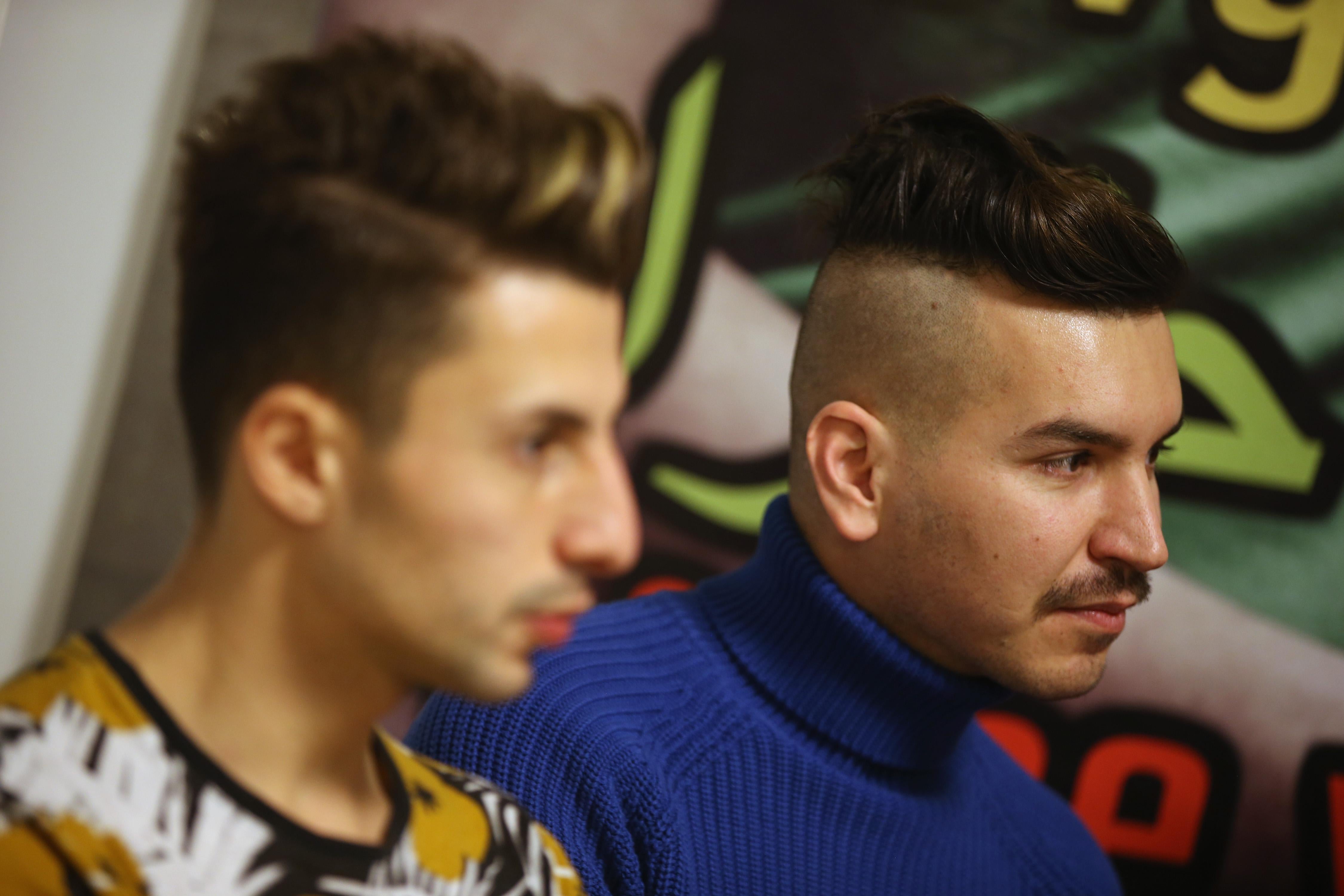Berlin’s first center for queer refugees will open next month, helping 120 of the German capital’s estimated 3,500 LGBTQ asylum seekers, mostly gay men and transgender people, to resettle outside the shelter system, where they are vulnerable to abuse and mistreatment.
The problems being experienced by LGBTQ refugees first came to the attention of Schwulenberatung Berlin—a counseling center for LGBTQ people, including queer refugees, which is based in the city’s Charlottenburg neighborhood—18 months ago. Under normal circumstances, refugees who claim asylum in Germany would be able to move into private accommodation three months after entering a government-run shelter. But in 2015, more than 1 million refugees entered Germany, overwhelming Berlin’s State Office for Health and Social Affairs (Landesamt für Gesundheit und Soziales, or LaGeSo), which is responsible for the welfare and resettlement of asylum seekers. Berlin is currently home to 150 shelters; sports halls and sites not fit for purpose, such as Tempelhof Airport, have been converted into refugee camps. The volume of applications means asylum requests are being processed more slowly than usual or become lost in the system, and refugees aren’t being resettled in private housing as quickly.
When I met with Schwulenberatung Berlin’s Stephen Jäkel in late January, he explained the risks queer refugees face in shelters. They are small worlds, where people are unoccupied most of the time, and rumors and gossip spread quickly. “There is violence if people come out or are recognized as LGBT. We have reports of people being spat on, called ugly words, or beaten,” he told me. One refugee was strangled, lost consciousness, and almost died. Jäkel’s organization has also heard of problems with homophobic security staff and interpreters who don’t care about the safety of LGBTQ refugees.
“Sometimes, interpreters don’t know the right words for LGBT, or they don’t like gay or trans people. They will say: ‘You don’t have to tell him you are gay. I won’t translate it. It’s not important,’ ” when evidently it is absolutely vital that queer refugees identify themselves to government authorities, Jäkel said. “We also had reports of interpreters quitting their jobs the moment they found out the person they’re translating for is gay.” Since they are privy to conversations that are supposed to be private, within the shelters, interpreters sometimes betray the confidence of LGBTQ asylum seekers.
The reports collected by Schwulenberatung Berlin corroborate the experiences queer refugees have reported at shelters in other European countries. Omar, a gay Syrian refugee seeking asylum in the Netherlands, told AFP that other refugees in the camps “threatened to kill me, they told me I was the shame of the refugees, they pushed me in the queue to get coffee. I was lucky that I wasn’t physically attacked.” Queer refugees in the Netherlands have also reported being sexually abused and having their clothes burned and their beds smeared with food and feces in the shelters.
The Lesbian and Gay Federation in Germany (Lesben- und Schwulenverband in Deutschland, or LSVD) identified 95 cases of violence against LGBT refugees between August and December 2015, mostly in asylum shelters. Since September 2015, Berlin has classified queer refugees as a social group in need of special treatment and protection with regards to housing, therapy, and so forth, akin to pregnant women, unaccompanied children, and the disabled.
The new LGBTQ-only shelter run by Schwulenberatung Berlin will house 120 asylum seekers in 29 one-to-four-bedroom apartments. Some flats will have their own kitchens, but the building will also have a cafeteria where refugees who aren’t yet receiving welfare payments can get meals. The building will be gated and will have round-the-clock in-person gay- and trans-friendly security protection. Schwulenberatung Berlin will also provide assistance so that the LGBTQ refugees in its care will be able to find housing in the private sector as soon as possible
“We are not in a situation to make the normal camps safe for LGBT people,” Jäkel said, noting the scale of the crisis and the dysfunction in the state bureaucracy. Of course it would be better to do so, he acknowledged, but when hundreds of people are living cheek by jowl in sports halls and airports, lacking food and work and sharing basic facilities, conditions are ripe for crime and violence.
Jäkel also acknowledged that the queer refugees might still experience problems at the new shelter. “There can be violence between partners, or between gays and trans people, or gays and lesbians, or people of different cultures,” he said, but he hopes the LGBTQ-only environment and the improved living conditions—including access to their own kitchens and bathrooms, where they once had to share facilities with 30 or 50 other refugees—would reduce the risk of friction.
After the wave of sexual assaults perpetrated against women in Cologne on New Year’s Eve, reportedly by young men from North Africa, some members of minority communities in Germany are concerned about the values and prejudices new refugees may bring with them from their countries of origin. Just last month Angela Merkel warned about “young people who come from countries where hatred of Israel and Jews is widespread.” The treatment of LGBTQ refugees suggests that homophobia and transphobia will also present a challenge.
“It depends on how we make an offer of integration,” Jäkel concluded, noting the German government’s past failure to assimilate guest workers from Turkey. “This situation where [refugees] have nothing to do, no money, cannot move out of the camps, are not allowed to work will create problems for the future. The majority of them are fleeing from terrorism, radicalism, and Islamism, but if we don’t make real offers of integration, they will become disappointed, frustrated, and open to hate. It is the work of the next decade, but it has to start now.”
